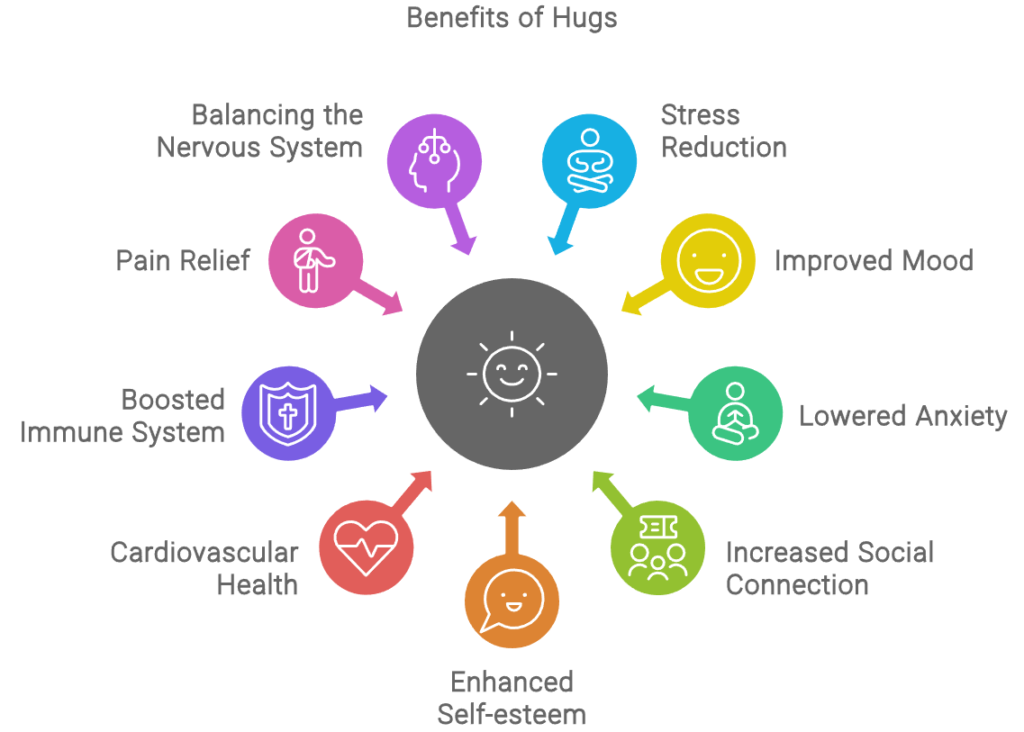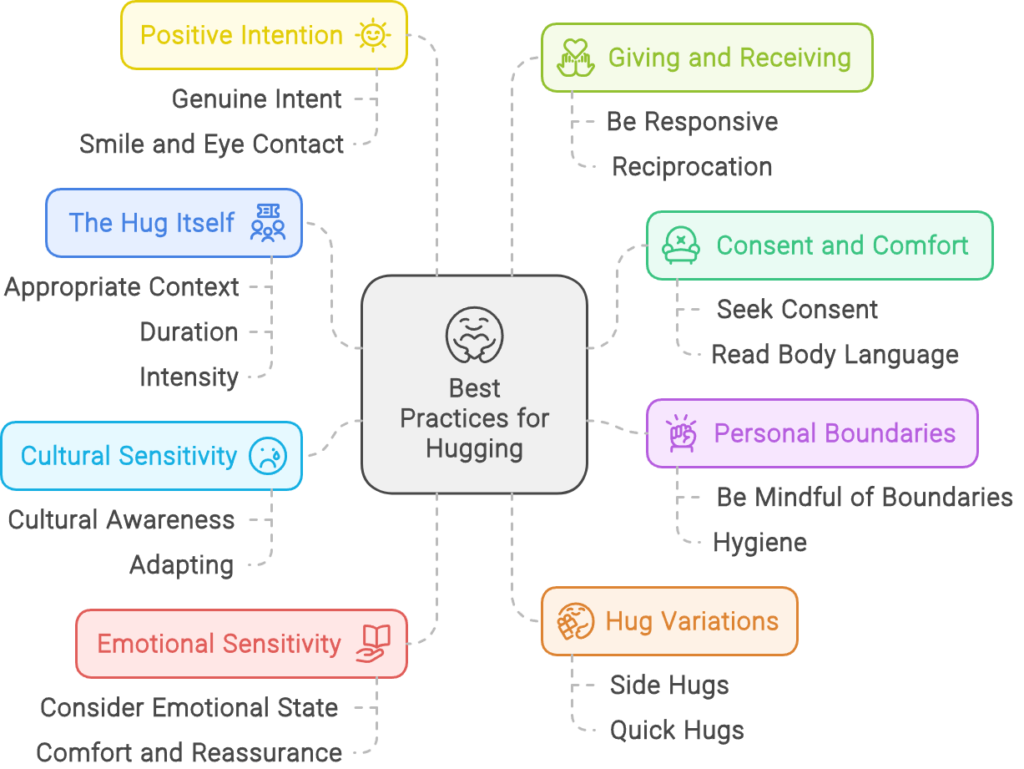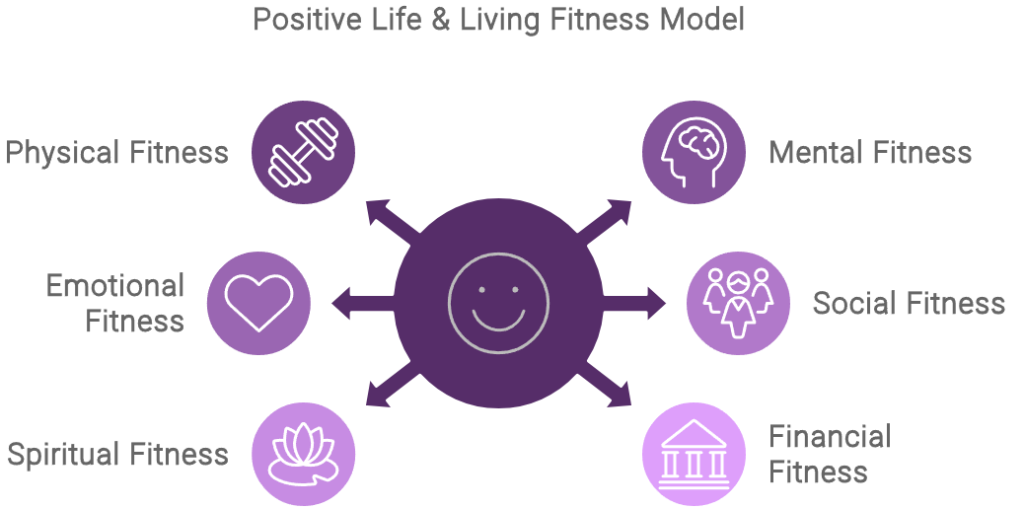Hugs have been extensively studied and found to offer numerous psychological and physiological benefits. Here’s an overview based on existing research in the field of positive psychology and health sciences:

Psychological Benefits
- Stress Reduction: Hugs help to release oxytocin, a hormone that promotes feelings of bonding and reduces stress. This hormone is also known as the “cuddle hormone” or “love hormone.”
- Improved Mood: Physical touch, including hugs, can boost serotonin and dopamine levels, which are neurotransmitters responsible for feelings of happiness and well-being.
- Lowered Anxiety: Hugs can reduce feelings of anxiety and fear, providing a sense of safety and security.
- Increased Social Connection: Regular hugs can strengthen social bonds, improve trust and support relationships.
- Enhanced Self-esteem: Consistent physical affection from parents during childhood has been linked to higher self-esteem in adulthood.
Physiological Benefits
- Cardiovascular Health: Hugs can help lower blood pressure by reducing the levels of cortisol, a stress hormone. Lower blood pressure decreases the risk of heart diseases.
- Boosted Immune System: The reduction in stress from hugging can improve immune function, making the body more resistant to infections and illnesses.
- Pain Relief: Oxytocin released during a hug can act as a natural pain reliever.
- Balancing the Nervous System: Hugs can influence the parasympathetic nervous system, promoting a state of calm and relaxation.
Regular hugging can be a simple yet powerful way to enhance personal relationships and improve mental and physical health.
Hugging’s Impact on Happiness, Quality of Life and Well-being
Hugs contribute to happiness, quality of life, and well-being in the following ways:
Happiness
- Release of Happiness Hormones: Hugs trigger the release of oxytocin, often referred to as the “love hormone.” Oxytocin promotes feelings of contentment and reduces stress and anxiety, outright contributing to a sense of happiness.
- Boost of Dopamine and Serotonin: Physical touch, including hugging, stimulates the release of dopamine and serotonin, which are associated with pleasure and mood regulation, enhancing overall happiness.
- Emotional Comfort: Physical affection provides emotional comfort that can mitigate feelings of loneliness and depression, leading to a happier state of being.
Quality of Life
- Strengthened Relationships: Regular hugs can reinforce bonds and build stronger relationships by fostering trust and intimacy. Strong social connections are closely linked to a higher quality of life.
- Improved Mental Health: By reducing stress and anxiety, hugs contribute to better mental health, which is a crucial component of quality life.
- Enhanced Coping Mechanisms: The emotional support provided by hugs can enhance one’s ability to cope with life’s challenges and setbacks, thus improving resilience and overall quality of life.
Well-being
- Physical Health Benefits: As previously mentioned, hugs can lower blood pressure, improve immune function, and reduce pain. Better physical health inherently improves overall well-being.
- Sense of Belonging: Hugs can foster a sense of belonging and acceptance, providing emotional and psychological security that improves one’s well-being.
- Reduction in Stress Hormones: Regular physical touch reduces levels of cortisol, the stress hormone, leading to less chronic stress and improved well-being.
- Mind-Body Connection: Hugs help calibrate the mind-body connection by inducing relaxation and a calming effect, promoting holistic well-being.
- Interpersonal Support: Hugs can be a form of support that reassures and validates individuals, strengthening social support networks, which are crucial for well-being.

The emotional, psychological, and physiological benefits of hugging can significantly enhance one’s happiness, improve quality of life, and support overall well-being. By fostering emotional bonds, reducing stress, and promoting positive health outcomes, hugs are a simple yet powerful tool for enhancing various aspects of life.
Hugging Best Practices
Hugging might seem like a simple act, but there are some best practices to ensure it is a positive and comfortable experience for both parties involved. Here are some best practices for hugging:

Consent and Comfort
- Seek Consent: Always ensure the other person is comfortable with hugging. You can ask directly, “Can I give you a hug?” Respect their decision if they decline.
- Read Body Language: Pay attention to the other person’s body language. If they seem tense or hesitant, it might be best to refrain from hugging.
The Hug Itself
- Appropriate Context: Consider the context and setting. Not all situations are appropriate for hugs, especially professional or formal environments unless it is mutually appropriate.
- Duration: A hug doesn’t need to be overly long. A few seconds, typically around 3-7 seconds, is usually sufficient for the beneficial effects without making the other person uncomfortable.
- Intensity: Gauge the appropriate strength of the hug. A gentle, snug hug is often best, avoiding overly tight embraces that could be uncomfortable or intrusive.
Personal Boundaries
- Be Mindful of Boundaries: Respect personal space and boundaries, especially for individuals who might not be comfortable with close physical contact.
- Hygiene: Maintain good personal hygiene to ensure the hug is pleasant for the other person.
Cultural Sensitivity
- Cultural Awareness: Be aware of cultural differences regarding physical contact. In some cultures, hugging is less common or may have different meanings.
- Adapting: Adapt your approach based on the cultural context and the other person’s preferences.
Emotional Sensitivity
- Consider Emotional State: Be sensitive to the emotional state of the other person. A hug can be very comforting during times of distress but could be overwhelming for someone who is very upset or uncomfortable with touch.
- Comfort and Reassurance: When hugging someone who is distressed, combine the hug with comforting words to enhance the emotional support.
Hug Variations
- Side Hugs: For a more casual or less intimate embrace, consider a side hug where you wrap an arm around the person’s shoulders.
- Quick Hugs: In situations where a full hug might be too much, a quick, gentle pat on the back can convey support and affection.
Positive Intention
- Genuine Intent: Ensure your hug is given with genuine positive intent, such as comfort, support, or affection.
- Smile and Eye Contact: Before and after the hug, maintain eye contact and offer a warm smile to convey positivity and genuine warmth.
Giving and Receiving
- Be Responsive: Pay attention to how the other person responds. If they pull away or seem uncomfortable, let go immediately.
- Reciprocation: If someone hugs you, reciprocate in a manner that mirrors their comfort level and respect their boundaries.
Incorporating these best practices for hugging can ensure the experience is positive, consensual, and emotionally supportive for both individuals involved.
